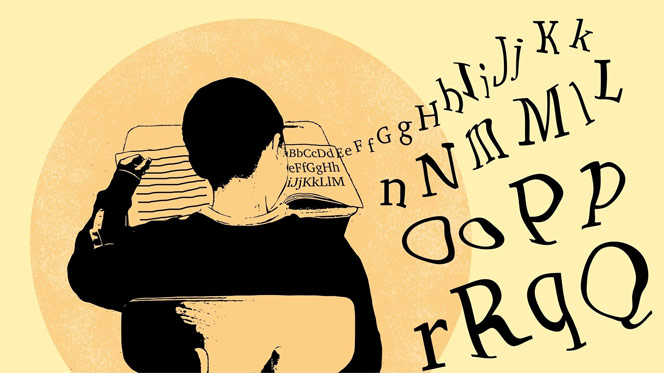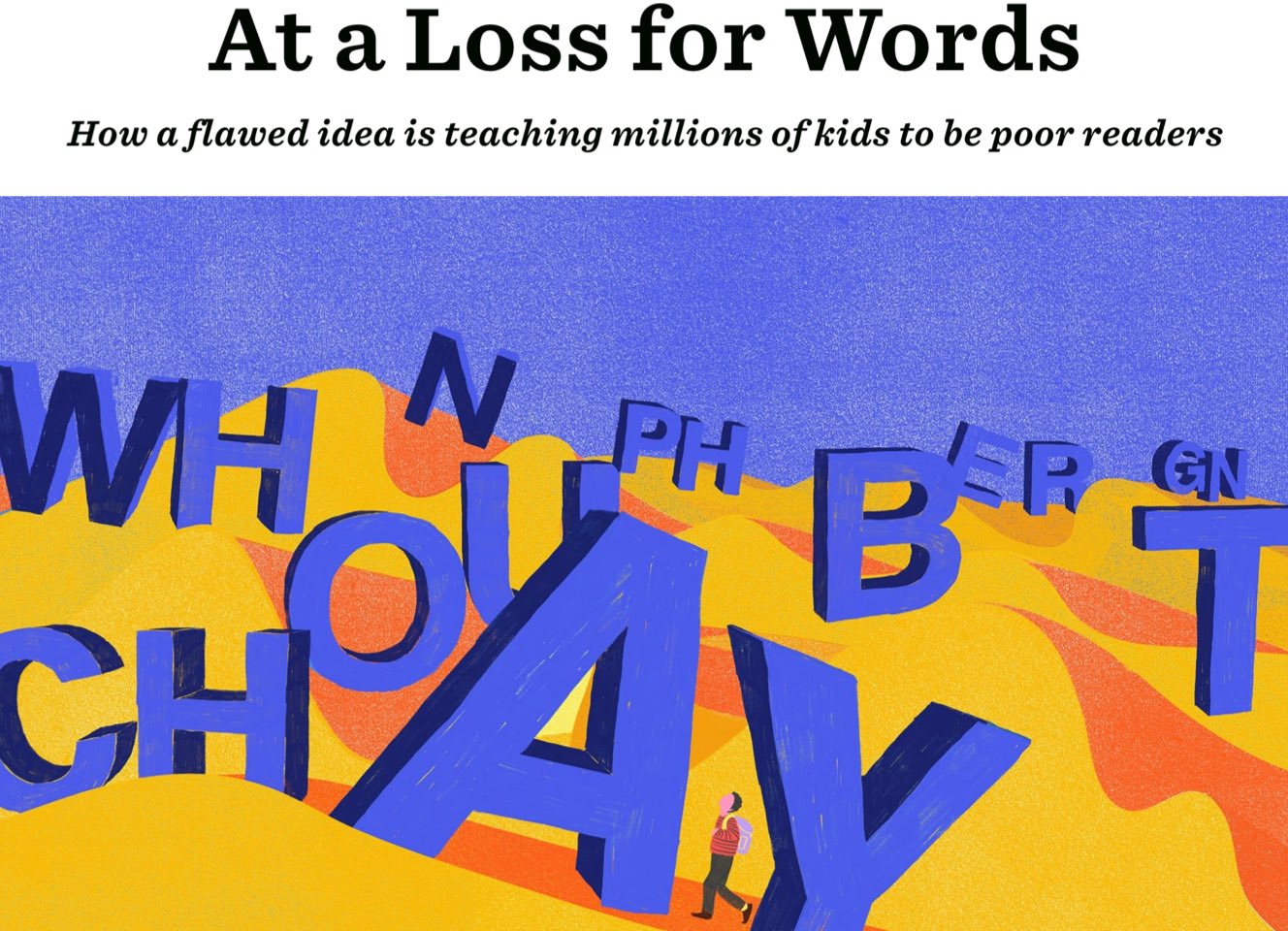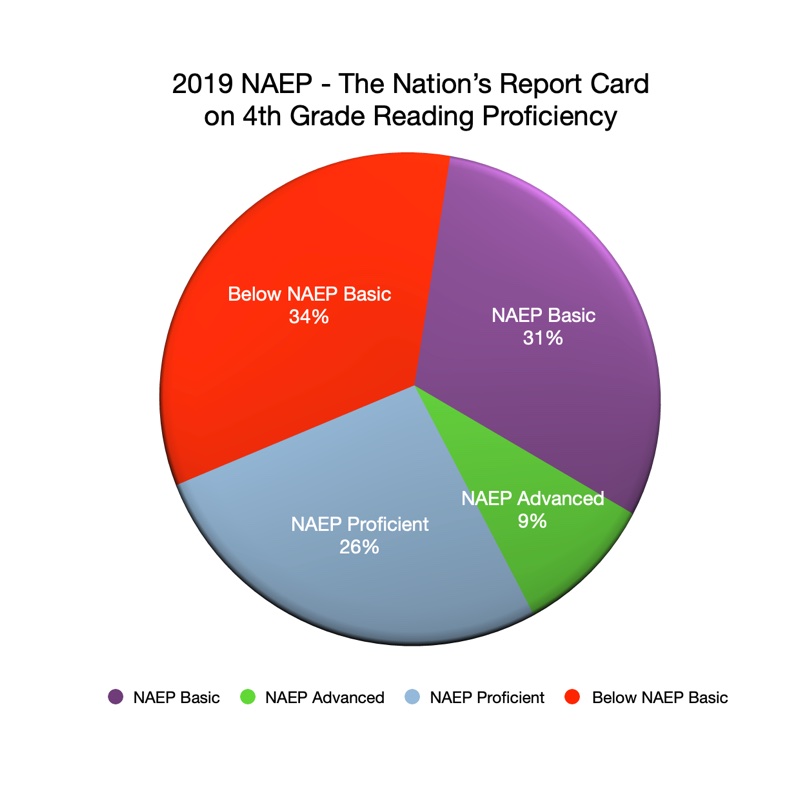National Association for Educational Progress (NAEP):
Abbreviated Reading Level Definitions used in the Nation’s Report Card.
Below NAEP Basic – 34%
Currently, there is no definition of the reading skills or comprehension when a fourth-grade student’s test results are at “Below NAEP Basic“.
NAEP Basic – 31%
Fourth-grade students performing at the NAEP Basic level should be able to locate relevant information, make simple inferences, and use their understanding of the text to identify details that support a given interpretation or conclusion. Students should be able to interpret the meaning of a word as it is used in the text.
When reading informational texts such as articles and excerpts from books, fourth-grade students performing at the NAEP Basic level should be able to identify the main purpose and an explicitly stated main idea, as well as gather information from various parts of a text to provide supporting information.
NAEP Proficient – 26%
Fourth-grade students performing at the NAEP Proficient level should be able to integrate and interpret texts and apply their understanding of the text to draw conclusions and make evaluations.
When reading literary texts such as fiction, poetry, and literary nonfiction, fourth-grade students performing at the NAEP Proficient level should be able to identify implicit main ideas and recognize relevant information that supports them. Students should be able to judge elements of author’s craft and provide some support for their judgment. They should be able to analyze character roles, actions, feelings, and motives.
NAEP Advanced – 9%
Fourth-grade students performing at the NAEP Advanced level should be able to make complex inferences and construct and support their inferential understanding of the text. Students should be able to apply their understanding of a text to make and support a judgment.






